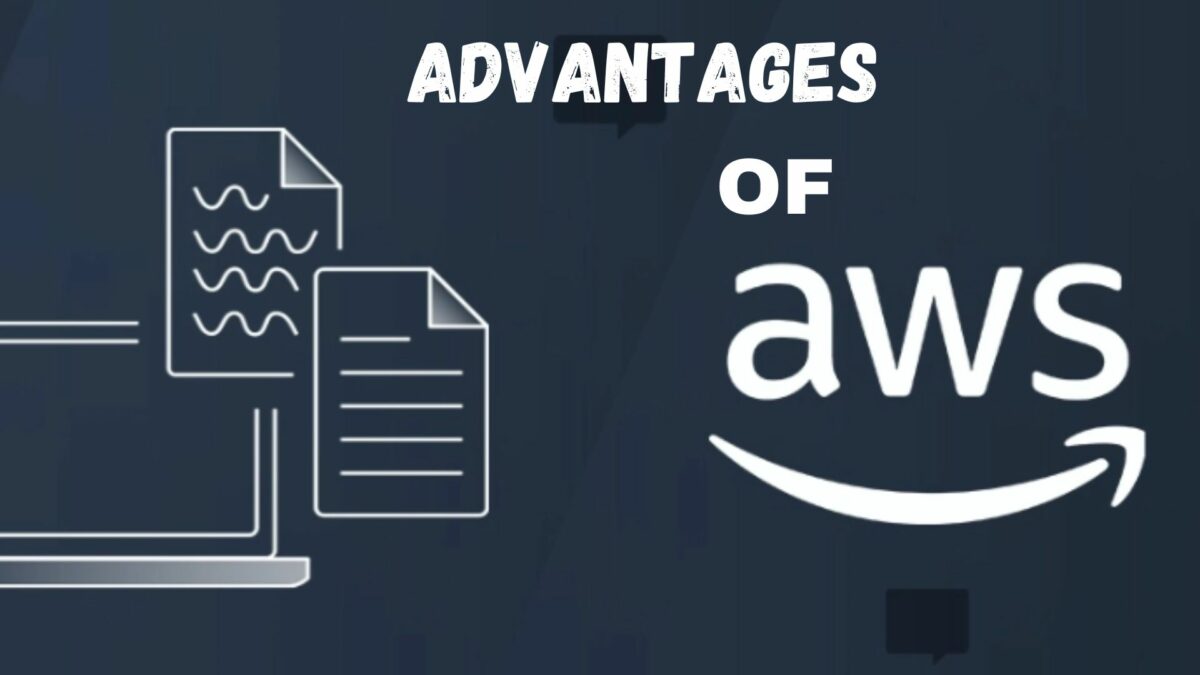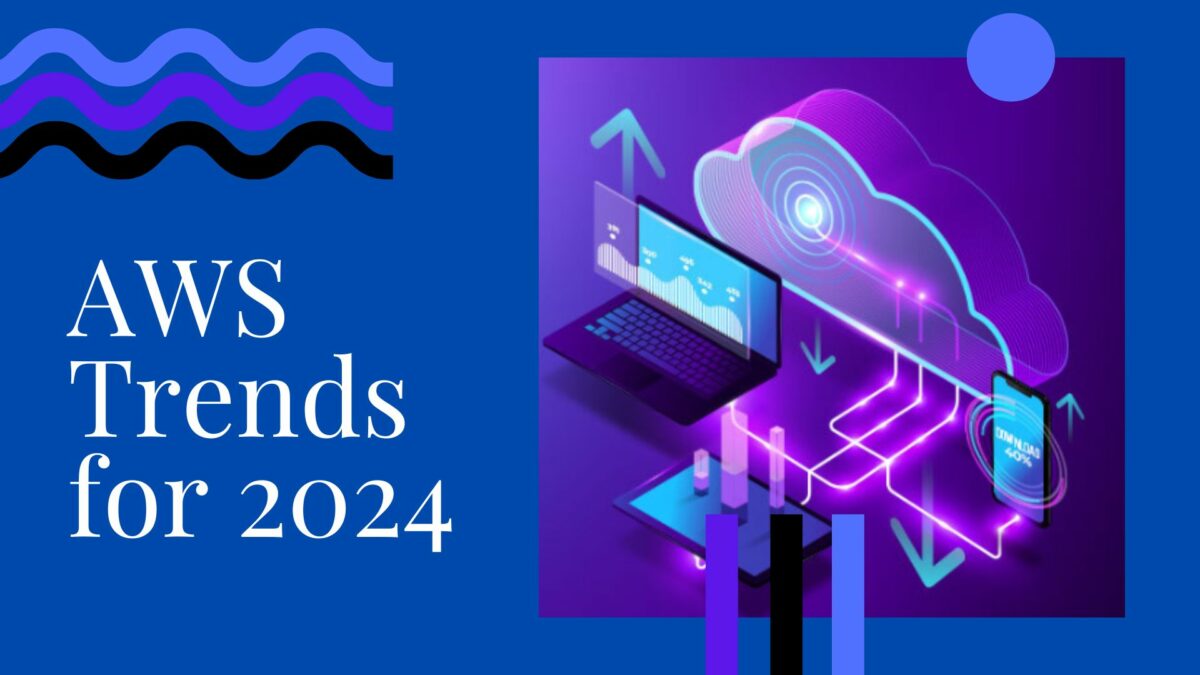Leveraging the Power of AWS: A Top Software Development Company in India’s Approach

Introduction
We all know AWS needs no introduction. Its cloud-based features are leveraged by worldwide enterprise companies. AWS’s largest customer base is in the USA. However, according to Thomson Data, India has almost 48,000 companies taking advantage of AWS to streamline their professional and personal lives.
We will explore the AWS framework, its benefits, current trends, and how the top software development company in India leverages a range of AWS functions to build scalable software solutions for their clients.
What Does AWS Mean?

AWS stands for Amazon Web Services and it is being used by companies like Netflix to provide a streaming service and many other business solutions. The company made a whopping $90 billion in 2023. A customer can access the AWS Management Console, APIs, or the Command Line Interface for resource requests, data uploading, and changing security settings.
What Is AWS Used For?
AWS is a cloud platform that enterprises of any size can leverage based on the pay-as-you-go model. AWS is good for startups because of low costs and enough computing power along with the ability to manage the company’s growth. The company does not have to own and operate the servers on its own. AWS is beneficial for developers as well, with tools such as AWS lambda, which allows them to run the code without even knowing its infrastructure.
How Does AWS Work?
AWS offers on-demand cloud services that businesses can modify according to their needs. For example, organizations use Amazon EC2 to launch servers and launch virtual servers easily and in minutes instead of months. Amazon S3 provides easy-to-use management features for organizing and configuring data and scales access to it. It also offers low-cost, disc storage opportunities for data archiving and long-term backup. Amazon RDS provides a tool for user-friendly scalable databases. It automates system restoration, backup, and administration to increase developers’ productivity.
Amazon Web Services by Industry
Amazon Web Services serves specialized applications to each industry:
Healthcare: The AWS service renders patient care to patients and optimizes operations. It securely stores and manages patients’ records and provides sophisticated applications for highly automated medical research.
Finance: Financial institutions take advantage of the AWS features for its secure and scalable solutions. With encryption and continuous monitoring, AWS meets the requirements of law, so that all legal compliances are met meticulously.
Retail: Retailers utilize the AWS application to organize better shopping experiences for their customers. AWS can efficiently handle large amounts of customer data during peak seasons when web traffic increases.
Education: Educational institutes utilize AWS services in order to manage their smart classroom services. It allows them to securely manage large amounts of user data, maintaining the integrity of educational institutions.
Manufacturing: The AWS solutions help manage productivity with IoT applications that allow controlling every machine in real time and solutions that enable precise maintenance through predictive models.
AWS Advantages

AWS has N number of advantages:
Robust Security: AWS provides tight security standards, data encryption, and the ability to flow data across any platform.
High Network Availability: AWS Global Infrastructure grants excellent availability and easy problem-solving options.
Excellent Performance: AWS Regions leverage a 100 GbE fiber backbone network that offers low latency and very high network quality.
High Scalability: AWS can scale infinitely, allowing it to cover peak operations but also cut costs, thanks to resources that a company can provision as needed.
Extreme Flexibility: AWS offers many options to run workloads both globally and on-site.
Global Footprint: AWS’s widely spread Global Infrastructure gives any business an opportunity to choose the best technological setup.
How Much Does AWS Cost?
Amazon Web Services is billed based on the services provided and the duration of it. So, the cost may be considered as a pay-as-used model, with users only paying for what they use.
For example, the cost of Amazon EC2 on-demand, the most popular AWS suite, is $0.05 per hour and the price of the Amazon S3 is $0.023 per GB. The AWS uses a flexible pricing method, including the Savings Plans and Reserved Instance that can lower your overall costs significantly.
Top Companies That Use AWS
Hundreds of well-known companies worldwide are switching to Amazon Web Services. For instance, Netflix employs AWS to provide smooth streaming services. Another considerable example is Twitch, which operates on AWS to process millions of live broadcasts.
Besides, LinkedIn and Facebook also leverage AWS for networking and data storage scaling. Large media enterprises, BBC and ESPN, rely on Amazon Web Services for effective delivery of content and real-time analytics.
Adobe and Twitter take advantage of AWS for superior infrastructure, as well as high service and data security. Such eminent corporations as Johnson & Johnson, Airbnb, AOL, Hitachi, Unilever, GE Oil and Gas, Kellogg’s, Shell, and Apple use AWS due to its broad cloud range in order to achieve operational efficiency, scalability, and superior innovation.
AWS Trends for 2024

Several AWS trends will definitely change cloud technology in the year 2024. They are as follows:
AI and Machine Learning Integration: AWS will make AI and Machine Learning accessible by enhancing its offerings, making it easy to build and deploy even more intelligent applications.
Serverless Computing Evolution: AWS will find a way to extend the benefits of a serverless architecture to additional as well as more complex applications.
Edge Computing for Low-Latency Applications: AWS will also continue to invest in edge computing techniques to move processing closer to the source of data generation for real-time processing needs in IoT, AR/VR, and autonomous vehicles.
Quantum Computing Services: AWS plans to do more in this area as such services will allow researchers to access and experiment with Quantum Technology.
Hybrid Cloud Solutions: Along with the fast-expanding AWS cloud services, AWS will develop more hybrid cloud options, enabling seamless integration between on-premise data centers and the AWS cloud.
Containerization and Kubernetes: It is also probable that AWS will embrace containerization even more by providing stronger support for Kubernetes.
Data Lakes and Analytics: AWS will invest in data lake advancements that will provide organizations with more cost-effective and faster data processing and security.
Green Cloud Computing: It will most likely continue to promote green and sustainable practices and will strive to build data centers that use less energy and are more environmentally friendly.
DevOps and Continuous Delivery: AWS will roll out more DevOps process management tools that bring together everything that is needed to build, test, and deploy applications.
The approach of this Top Software Development Company in India to leverage AWS for effective Software Solutions
Bluelupin is a top software development company in India, that provides innovative solutions to businesses using Amazon Web Services, or AWS. We at Bluelupin began harnessing AWS to deliver impactful, scalable, and highly secure software solutions in diverse sectors due to the reliability and robustness of AWS infrastructure. Engaging AWS services such as RDS, EC2, S3, and several others helps us to achieve low cost, high performance, reduced risk, and reliability.
For instance, AWS enables us to accommodate the requirements of India’s complicated socio-economic environment, either integrating open-source or licensed professional software, to ensure that our software solution is properly optimized. The outstanding features of AWS, such as its scalability, cost-efficiency, and security, assist us in the provision of optimal solutions in education, finance, and other industries.
Our AWS services include the following- Amazon API Gateway, Amazon Cognito, AWS CloudWatch, AWS Step Functions, Amazon S3, Amazon Lambda, AWS Aurora, AWS DynamoDB, AWS SES, AWS CloudFront, and AWS ECS.
FAQs
1. Why does everyone use AWS?
The foremost reason for using AWS is considered Amazon’s pricing strategy which allows you to “pay for what you use”. This reduces overall costs and saves lots of money on hardware. You can use AWS for free for one month, giving you enough time to evaluate if it suits your business purpose. Other than these, you are probably aware of AWS’s performance speed and deployment speed, robust security, and flexibility in using a range of APIs. These are the vital reasons why everyone should use AWS.
2. What are the benefits of using AWS organizations?
AWS being an efficient software solution, can seamlessly streamline internal operations, increase security, and regulate costs. AWS has lots of features that help you do this. It offers you a centralized cost allocation and billing process for efficient financial management. Easy account creation and management, effective Identity, Access Management (IAM), and Service Control Policies (SCPs) for robust security.
Their audit and compliance reporting is also simplified. Its streamlined processes promote inter-team collaboration and encourage innovation with seamless resource-sharing features. These are a few benefits among many others.
Conclusion
You can see AWS is more than just a cloud service provider. It’s a modern tool for innovation and growth. From advantages to current trends, you have enough information regarding AWS to get you to switch to the AWS framework. If 48,000+ Indian companies already started implementing AWS to stay ahead of the curve, not leveraging AWS functionalities to scale your business in 2024 can delay potential revenue increase.
